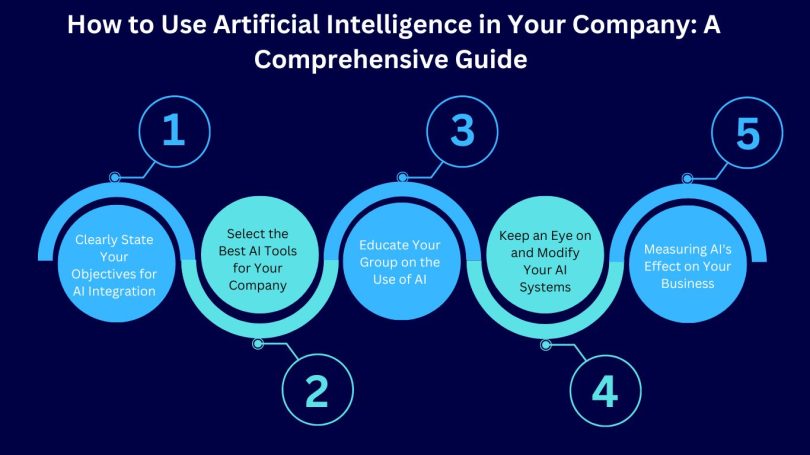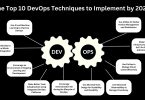Introduction:
Before integrating artificial intelligence (AI) into your company, it’s essential to understand what AI truly is. AI is the replication of human intelligence in computers, enabling them to think, learn, and perform tasks such as voice recognition, problem-solving, and decision-making, which typically require human intelligence. While AI has its origins in the 1950s, it has experienced significant advancements due to improvements in processing power, increased data availability, and sophisticated algorithm development. A basic part of man-made intelligence is AI (ML), which permits frameworks to gain from information and work on their presentation after some time. This capability is becoming increasingly vital across various sectors, including healthcare, finance, and transportation, where AI systems are now capable of performing complex tasks with remarkable accuracy.
Why Artificial Intelligence Is Important for Business:
AI is revolutionizing the business world by enhancing productivity, streamlining procedures, and facilitating data-driven decision-making. AI gives firms a competitive edge by automating monotonous jobs and providing real-time analysis of massive volumes of data. By examining consumer preferences and purchasing patterns, artificial intelligence (AI) is utilized in retail to enhance the customer experience and boost sales by offering tailored product recommendations. Artificial Intelligence (AI) in manufacturing increases efficiency and reduces costs by optimizing production schedules, detecting errors in real-time, and predicting maintenance needs. AI provides significant advantages for customer service as well. Chatbots and virtual assistants powered by artificial intelligence (AI) provide prompt responses to customer inquiries, enhancing customer satisfaction while relieving pressure on human agents and offering 24/7 support.
The Three Most Typical AI Technology Types:
Machine Learning (ML): ML enables computers to learn from data and forecast future events. It is employed in tailored marketing, fraud detection, and picture recognition. For example, machine learning systems can correctly identify objects in images and identify medical scan abnormalities.
Natural Language Processing (NLP): Human language may be understood and interpreted by robots thanks to natural language processing, or NLP. This technology drives chatbots that converse like humans, sentiment analysis tools, language translation services, and voice assistants like Siri and Alexa.
Robotic Process Automation (RPA): RPA uses software robots that replicate human behaviors to automate repetitive operations like filling out forms, clicking buttons, and extracting data from documents. Three industries that make extensive use of robotic process automation (RPA) include finance, insurance, and logistics.
AI in Your Business: Its Advantages:
Computer based intelligence can further develop client experience and smooth out tasks, which can affect your association.
Simplify Your Business Processes:
AI is incredibly useful for automating laborious manual jobs. AI-driven chatbots, for instance, manage customer requests, freeing up your support staff to tackle more complicated problems and offering prompt answers to consumer inquiries, even outside of regular business hours.
Supply chain management benefits from artificial intelligence (AI) in the form of lower costs, better inventory control, and demand forecasting. AI algorithms can effectively estimate demand by studying past data and industry patterns, which can assist you in maintaining ideal inventory levels.
Artificial Intelligence (AI) reduces errors and saves time in finance and HR by automating repetitive operations like report generation from financial data or resume screening.
Provide an Improved Client Experience:
AI can revolutionize consumer engagement by offering smooth omnichannel experiences, recommending products, and personalizing marketing strategies. Recommendation engines driven by AI make product recommendations based on past browsing and purchase activity, boosting revenue and client happiness.
Integrating chatbots into your mobile app or website can improve customer satisfaction and loyalty by providing FAQ answers, problem-solving assistance, and purchasing guidance.
AI also examines sentiment and comments from users on social media, in reviews, and in surveys. With the aid of these insights, you can better comprehend client preferences, pinpoint areas for development, and make informed decisions to improve the experience as a whole.
Sorting out Your man-made intelligence Execution Plan:
Artificial intelligence execution calls for careful methodology and arranging:
Step 1: Clearly State Your Objectives for AI Integration:
Prior to embarking on your AI journey, identify your aims and objectives. Determine particular applications of AI, such as increasing customer satisfaction or operational efficiency, and establish quantifiable goals to maintain focus and gauge progress.
Step 2: Select the Best AI Tools for Your Company:
Choose platforms and technologies for AI that support your objectives. Consider factors like affordability, expandability, and simplicity of integration. Select instruments that have a track record of dependability and efficiency.
Using AI in Your Company:
Now that you have planned, put your AI approach into action.
Step 3: Educate Your Group on the Use of AI:
Make sure everyone on your team has received the necessary training and tools to use AI efficiently. Introduce them to the selected AI tools and technologies, and give them access to resources for the analysis and interpretation of insights produced by AI. Encourage skill development and lifetime learning as AI advances.
Step 4: Keep an Eye on and Modify Your AI Systems:
AI implementation is a process that is iterated. Evaluate AI system performance on a regular basis, examine data, and make required modifications to streamline workflows and increase productivity.
Measuring AI’s Effect on Your Business:
Use key performance indicators (KPIs) to assess AI’s effects on your business.
- Crucial Performance Measures for the Success of AI
- Automation-related cost savings
- Enhanced effectiveness of operations
- decrease in the rate of errors
- An increase in the ratings for customer satisfaction
- Increased income with AI-driven tactics
AI’s Long-Term Advantages for Your Company:
Long-term advantages of AI include scalability, adaptability, and insightful data from massive datasets. Using AI to its full potential opens doors, spurs creativity, and keeps companies ahead of the digital curve.
All things considered, artificial intelligence technologies have great promise for optimizing processes, enhancing judgment, and improving consumer satisfaction. Artificial intelligence’s powers will grow as it grows more, affecting how organizations work from here on out. Through comprehension of AI, seeing applications, strategizing, putting AI to work, and tracking results, business owners may revolutionize their companies and reach new heights in the digital era.








